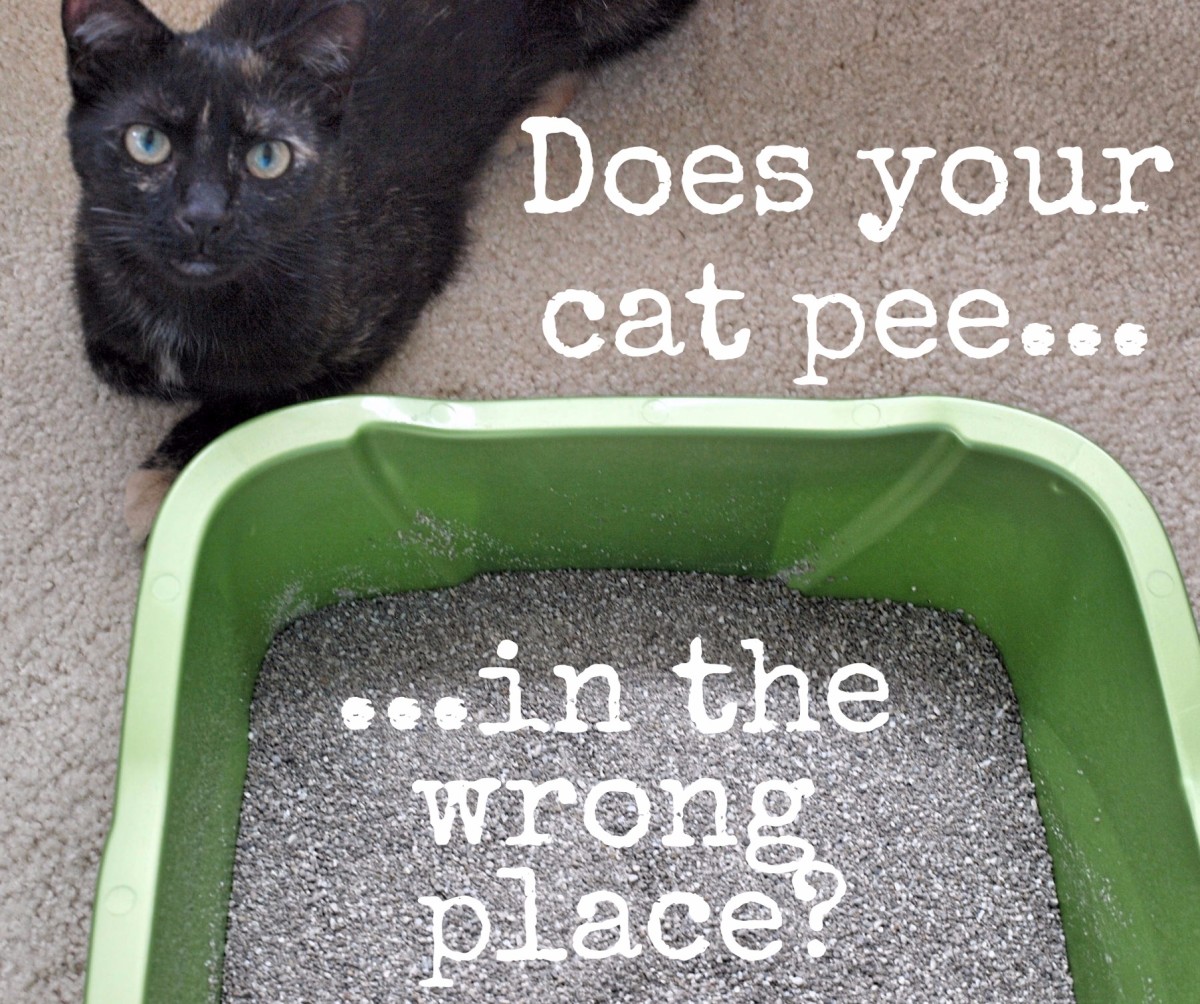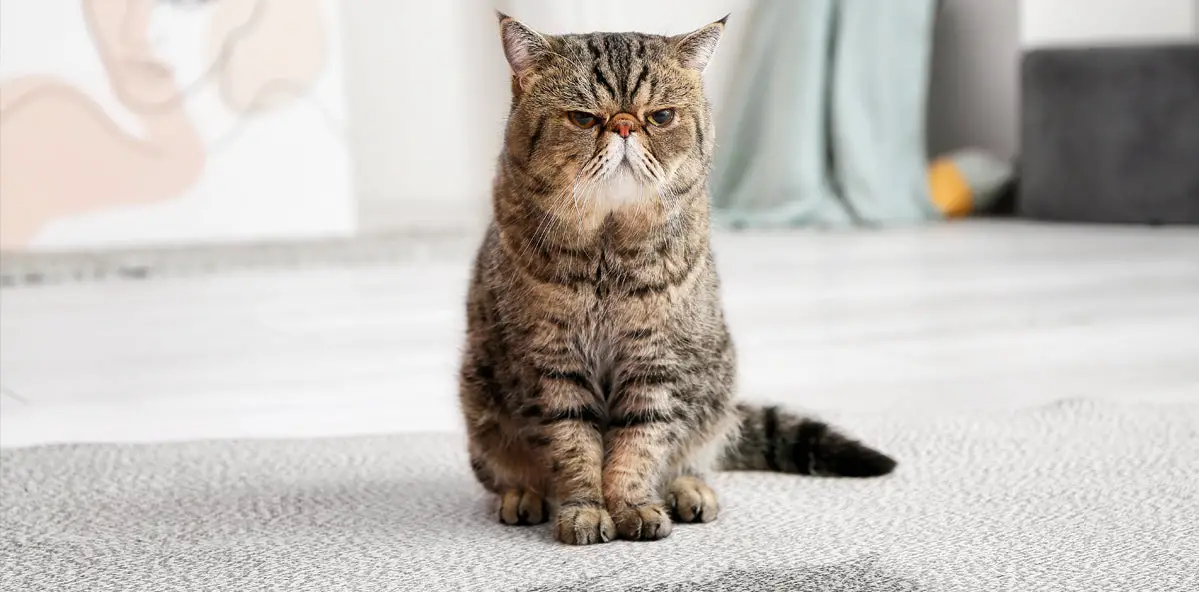There are a few reasons that your bathroom may smell like cat pee. One possibility is that your cat has started urinating in the bathroom instead of their litter box. Another possibility is that your cat has begun to urinate outside of their litter box and the urine is coming through the floor into the bathroom.
If you have ruled out these possibilities, it is possible that there is a problem with your plumbing or venting system which is causing sewer gas to come into your bathroom.
If you’ve ever wondered why your bathroom smells like cat pee, the answer is probably because your cat has peed in there. Cats are known for their love of cleanliness, so it’s no surprise that they sometimes use the bathroom as their personal litter box. If you find that your bathroom smells like cat pee, be sure to clean it up immediately to prevent any further accidents.
Mold That Smells Like Cat Urine
Are you smelling something foul and assuming it’s your kitty’s fault? Well, hold that thought. It might not be your beloved fur baby that’s to blame – it could be mold!
In particular, mold that smells like cat urine could be the source of your nose- wrinkling problem.Mold is a type of fungus that thrives in warm, damp environments. If your home has any water leaks or poor ventilation, this creates the perfect conditions for mold to grow.
And unfortunately, once mold takes hold, it can be very difficult to get rid of.So what does mold that smells like cat urine actually look like? It can appear as black or greenish-black spots on walls, ceilings or floors.
And if you see any fuzzy growths or have musty odors coming from these areas, this is another telltale sign of mold.If you think you might have mold in your home, the best thing to do is call in a professional for an inspection. They will be able to confirm whether or not you have a problem and help you develop a plan to get rid of the mold for good.
How to Get Rid of Cat Urine Smell in Bathroom
If your bathroom smells like cat urine, there are a few things you can do to get rid of the odor. First, make sure to clean up any urine that is visible. Use a paper towel or cloth to soak up as much urine as possible, then dispose of it in the trash.
Next, use a pet odor neutralizer or enzyme cleaner specifically designed to remove pet urine odor. You can find these products at most pet stores or online. Follow the instructions on the bottle, and be sure to thoroughly rinse away any cleaner before allowing your pets back into the bathroom.
Finally, try using a air purifier with activated charcoal filters to help absorb any lingering odors.
What Smells Like Cat Pee But Isn’T
There are a few things that can smell like cat pee but aren’t actually urine. One of the most common is rubber. When rubber gets old, it can start to emit an ammonia-like smell that can be mistaken for cat urine.
Another common culprit is dirty socks. If socks are left damp and stored in a closed space, they can start to develop a similar odor. Finally, some cleaning products contain ammonium compounds that can also produce a scent similar to cat urine.
Does Gas Smell Like Cat Pee
Have you ever wondered why gas sometimes smells like cat pee? Well, it’s actually because of a compound called mercaptan. Mercaptan is added to gas to give it a distinct smell so that people can easily detect leaks.
While the scent of mercaptan may be unpleasant, it’s actually harmless. So next time you notice a gas leak, don’t be alarmed by the scent – just make sure to call your local utility company so they can come and fix the problem!
Why Do I Smell Cat Pee When There is None
There are a few reasons why you might smell cat pee when there is none. One possibility is that your sense of smell is just very sensitive and you’re picking up on a faint scent that’s actually there. Another possibility is that you’re experiencing olfactory hallucinations, which can be caused by things like migraines, seizures, or psychiatric disorders.
If you’re concerned about the latter, it’s best to talk to your doctor.

Credit: dengarden.com
How Do I Get Rid of Cat Urine Smell in Bathroom?
If you have a cat, chances are you’ve dealt with the occasional urine smell in your bathroom. While it’s not the most pleasant thing to deal with, there are some things you can do to get rid of the smell quickly and effectively. The first thing you need to do is identify where the smell is coming from.
If it’s just in one small area, like on the floor around the toilet, then cleaning that area thoroughly will likely take care of the problem. However, if the smell seems to be coming from multiple areas or even throughout the room, then it’s probably due to your cat using the bathroom more often than usual. In this case, you’ll need to clean all surfaces in the room (including inside cabinets and under sinks) and make sure that your cat has access to a litter box that’s regularly cleaned out.
Once you’ve identified and cleaned up any areas that may be causing or exacerbating the problem, you can try using a commercial odor eliminator designed specifically for pet odors. These products usually come in spray form and can be found at most pet stores or online retailers. Make sure to follow directions carefully when using these products; usually they should be sprayed on affected areas and allowed to dry completely before being vacuumed up or wiped away (repeat as necessary).
If commercial odor eliminators don’t seem to be doing the trick, another option is to make your own natural cleaner using essential oils. Mix together equal parts water and white vinegar, then add 10-15 drops of an essential oil like lavender or lemon grass (or a combination of both). This solution can be sprayed on affected areas just like store-bought cleaners; just make sure not to use too much essential oil as it can irritate your cat’s skin.
Does Mold Smell Like Cat Pee?
No, mold does not smell like cat pee. While some types of mold can produce musty odors, this is not typically described as smelling like cat urine. Cat urine has a distinct, pungent odor that is often described as being similar to ammonia.
If you suspect you have mold in your home and it has a strong odor, it is likely due to another source and not the mold itself.
Why Does My House Smell Like Cat Pee When I Don’T Have a Cat?
If you’re wondering why your house smells like cat pee even though you don’t have a cat, there are a few possible explanations. It could be that your home is infested with urine-marking mice or rats. If you have an indoor pet, they may be the culprit.
Or, if you use cleaning products that contain ammonia, that could also be causing the odor. Whatever the source of the problem, it’s important to get rid of the smell as soon as possible since it can be quite unpleasant for you and your family members. One possibility is that your home is infested with urine-marking mice or rats.
These pests often urinate in homes to mark their territory and leave behind a strong ammonia smell. If you suspect this is the case, set up some mouse traps or contact an exterminator to get rid of them. Another possibility is that your indoor pet is responsible for the smell.
Dogs and cats will sometimes urinate inside when they’re feeling anxious or stressed out. If this is happening, try to figure out what’s causing your pet to feel this way and see if there’s anything you can do to help them feel more relaxed (e.g., adding a Feliway diffuser for cats). Finally, it’s possible that the cleaning products you’re using contain ammonia, which can cause an unpleasant smelling odor when mixed with other chemicals in urine (e.g., from pets).
What Causes Cat Pee Smell in House?
If you’ve ever had a cat, chances are you’ve also had the experience of dealing with a smelly house. Cat urine has a strong, distinct odor that can be difficult to get rid of. But what exactly causes this smell?
The main culprit in cat urine is a compound called felinine. Felinine is produced by the breakdown of amino acids in the liver and is excreted through the urine. It’s thought to play a role in communication and territorial marking among cats.
When felinine breaks down, it releases sulfur-containing compounds that are responsible for that characteristic cat pee smell.There are a few things you can do to try to reduce the amount of felinine your cat produces. One is to feed them a diet high in protein as this will help their liver break down amino acids more efficiently.
You can also try using an enzyme-based cleaner on any areas where your cat has urinated as this can help break down felinine and remove the odor. Finally, make sure you’re providing your cat with plenty of opportunities to mark their territory outside of your home so they don’t feel the need to do it inside where it’s not welcome!
You’re Doing it Wrong: How to Clean Cat Pee
Conclusion
If you’ve ever had the experience of walking into your bathroom and being greeted by a strong smell of cat urine, then you know how unpleasant it can be. There are a few possible reasons why your bathroom might smell like cat pee, and fortunately, there are some things you can do to fix the problem.One reason why your bathroom might smell like cat pee is that your toilet could be the source of the odor.
If there is any urine residue in or around the bowl, it can start to stink over time. Be sure to clean your toilet regularly with a good cleaner that will remove all traces of urine.Another possibility is that the vent for your bathroom’s exhaust fan isn’t working properly.
This can cause odors from the sewer to come back up into your bathroom through the fan. To fix this, you’ll need to have a professional come out and take a look at your vent system.Finally, if you have cats who use the litter box in your bathroom, make sure to clean it out regularly.
A dirty litter box can also lead to an unpleasant smelling bathroom.
